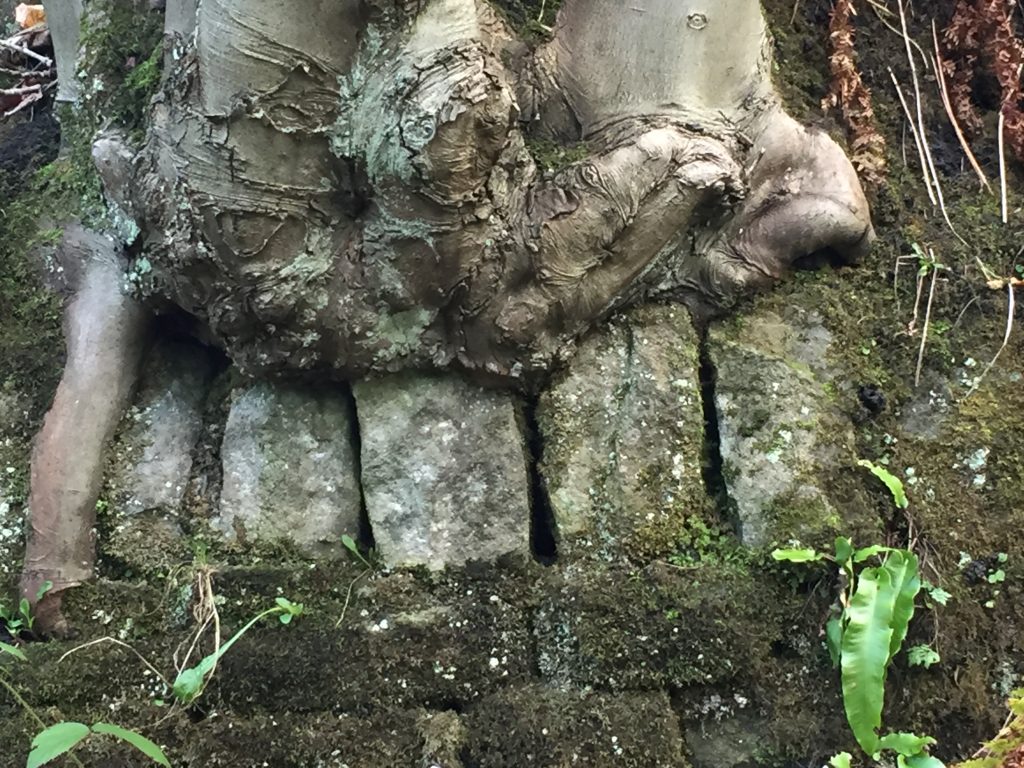
I stop for a moment to gaze intently at the fluorescent pink of the Himalayan balsam plant that lines my path, adding a welcome burst of color to this rolling sea of green. Yes, this plant’s an invasive import and is considered a menace by many, and I actually know people that walk these very paths scything it down, violently uprooting its stems – but it’s a beautiful menace just like the rhododendron. I step closer and peer into the flower’s very being as it gazes back at me with its hidden jewels. Its elongated body is hat shaped and cavernous as if to shade and obscure its innermost secrets. Above me the tousled heads of thistles, once proudly purple, now bow their shriveled heads, now grey with age, bowing to the earth, where they soon will come to rest. Above them the mountain ash forecasts the onset of winter with polished berries, as eye catching as Hawthorne’s scarlet letter.
The insistent singing of Hebden Beck navigates my scattered thoughts back to my morning’s reading, Glyn Hughes’s The Rape of the Rose, in which he describes the throstle machine which spun the cotton onto cones. A couple of manufacturers actually built child size versions of these machines so that children as young as five could be employed. Yes, employed, but disfigured, lungs ruined, fingers severed and lives cut short by this work in the new manufactories. The machines were named after the song thrush whose song they recalled. Residents of Lily Hall had been throstle spinners and throstle doffers, so it’s yet another link with my ancestry.
Passing Dog Bottom I imagine packs of wild dogs rampaging the steeply sided river bank before every inch of the river was imprisoned by walls, whose outlines are now softened, sculpted by stitches of moss into weird and wonderful creations that glint in the morning’s sunlight where a break in the trees allows the morning’s sunlight to penetrate the secret recesses, a green blanket gently enfolding and softening the brutal sharpness of life in Foster Mill. I have ancestors who worked at Foster Mill. I have ancestors who lived at Dog Bottom too. Above me the cold, weeping stone spine of Heptonstall stands atop the ridge like a watchful sentry perched above the two valleys, leafy trees now hiding their dastardly deeds. I loved Hughes’s description of the people going home after work up the stone steps with their lanterns radiating from the glowing mill like a starfish. A rustling in the bushes to my right startles me for an instant, but I smile to myself and console with the thought that it’s just the ghost of a wild dog. Then “Pie or crumble?” comes an utterance, unexpected but unhindered by the beauty of the balsam or the sighing willow herbs’ fleecy down. It rose from the darkened cluster of trees beyond me. I froze – unsure of my response. But I was saved by a reply from behind me, where I’’d heard the rustling branches. “Jam.”
Leave a Reply